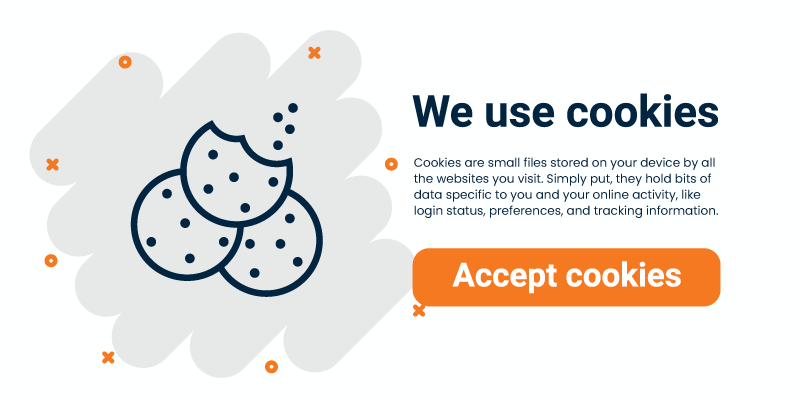Imagine a time when every move we make online doesn’t feel like we’re being watched by a nosy neighbor but more like a friend remembering your favorite coffee. Sounds refreshing, right? Well, this isn’t just a dream anymore. A big change in how we experience the web is just beyond the corner and it concerns third-party cookies. But before we look into Google’s decision to end third-party cookies by 2025, let’s break down what cookies are and why they’ve been the keystone (and at times the bane) of our (online) existence.
What Are Cookies?
Cookies are small files stored on your device by all the websites you visit. Simply put, they hold bits of data specific to you and your online activity, like login status, preferences, and tracking information. There are two main types of cookies:
First-party cookies: Created by the website you’re visiting directly and they’re generally used to improve user experience by remembering login details or personalization settings.
Third-party cookies: Created by domains other than the one you’re visiting and they’re mainly used for tracking and advertising purposes, allowing advertisers to follow you across the web to serve targeted ads.
Why Do We Need Cookies?
Cookies are the key element of personalized web experiences and targeted advertising. In fact, they help companies understand user behavior and tailor content and advertisements more successfully. However, they also raise significant privacy concerns, as users often have little visibility and understanding into how their data is being used.
Pros and Cons of Cookies
Pros
- Enhanced User Experience: Remembering login credentials, preferences, and shopping carts.
- Targeted Advertising: More relevant ads based on user behavior.
- Analytics: Helping website owners understand user interactions and improve their sites.
Cons:
- Privacy Issues: Tracking across multiple sites without consent.
- Security Risks: Potential for misuse if cookies are hijacked.
- Data Overload: Users often feel overwhelmed by the amount of data collected about them.
Did You Know?
Did you know that the average website has over 20 third-party trackers embedded? This means that your browsing activity is being monitored by numerous entities, often without your explicit knowledge.
Google’s Decision to End Third-Party Cookies
Now, onto the big news: Google plans to phase out third-party cookies by 2025. This decision is part of their Privacy Sandbox initiative, which aims to create web technologies that protect user privacy while still allowing for targeted advertising. The plan was to end third-party cookies by 2024 but, as of recently, Google citied industrial challenges as the reason for the delay.

Why Is This Good?
- Enhanced privacy — reduces the amount of tracking and data collection without user consent.
- Greater transparency — users will have more control over their data and how it’s used.
- Innovation — encourages the development of new technologies that balance privacy with the needs of advertisers and publishers.
Why Could It Be Bad?
- Advertising challenges — smaller companies may struggle to effectively reach their audience.
- Economic impact — potential reduction in revenue for ad-dependent websites and services.
- Technical obstacles — transitioning to new systems will require significant effort and adaptation.
The Impact
Google’s decision will surely have a strong and far-reaching impact on everyone. For developers, this change will mean adapting to new standards and technologies. Similarly, marketeers will need to find new ways to reach their audience without third-party cookies. On the other side, for users, this could mean a more private and secure browsing experience.
What We Think
Google’s initiative is a positive move towards a more privacy-focused web. It pushes the industry to rethink how we handle user data and encourages the development of more ethical technologies. While there will be growing pains, the long-term benefits outweigh the challenges.
Stay online as we continue to explore and adapt to these exciting developments.